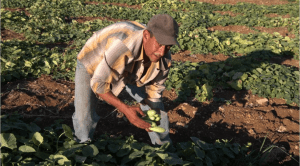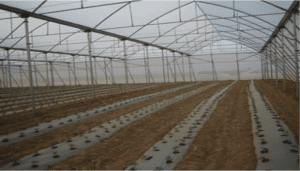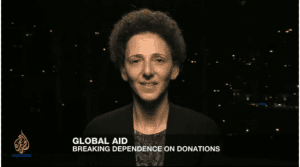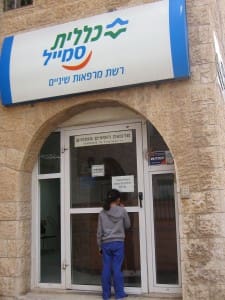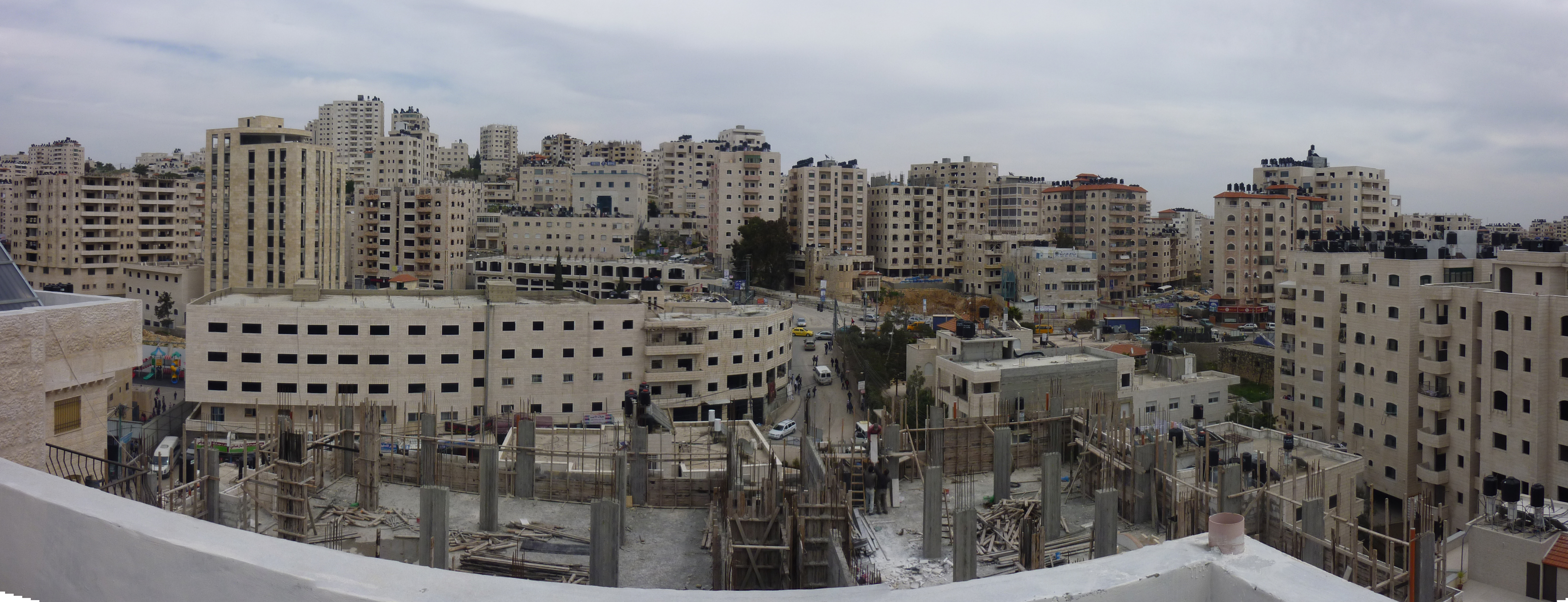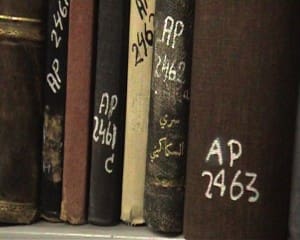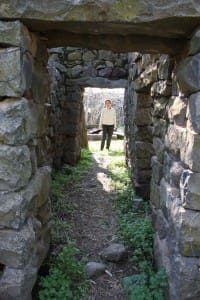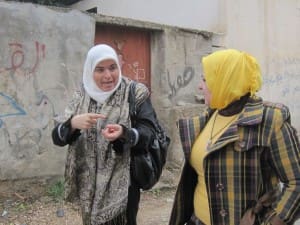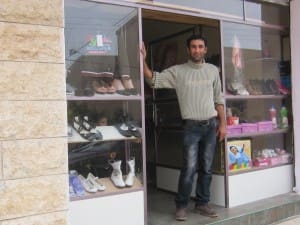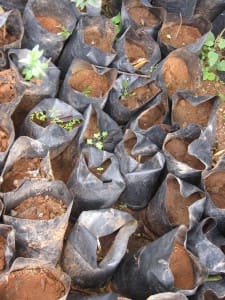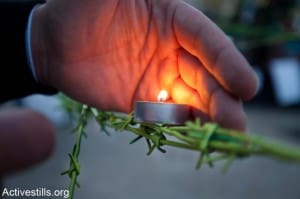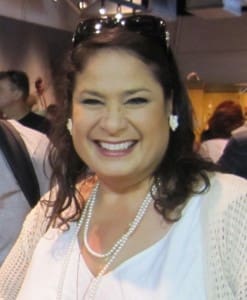This article appeared on www.WhyDev.org, an excellent blog that is building a community of critical development practitioners.
In our previous post on WhyDev, “Is anything going right in NGO-INGO relations?” we acknowledged that relations between local non-governmental organizations (NGOs) and international non-governmental organizations (INGOs) are often strained by power dynamics. Given these tensions, it is useful to explore how things sometimes go right when the two come together to do development work.
In this post we reflect on the relationship between Dalia Association, a Palestinian community foundation, and PeaceGeeks, a Canadian NGO providing technical assistance in the developing world, and the finished project — an online competition to identify and celebrate innovative examples of Palestinian philanthropy.
Nora Lester Murad on behalf of Dalia Association:
Dalia Association’s collaboration with PeaceGeeks was among the most worthwhile that I can remember. There are at least three reasons.
1. We both focused on the goal.
Too often, international partners focus on activities or outputs. There is such emphasis on implementing the plan, there isn’t enough room for adjustment when realities on the ground change. Dalia and PeaceGeeks, however, stayed focused on the ultimate goal of promoting philanthropy, and this enabled the project design, activities and outputs to develop as we learned together.
2. Internationals pushed forward but did not take over.
PeaceGeeks moved faster and more fluidly than Dalia, which, like many small and struggling NGOs, gets distracted by political, social and economic problems in the society and the organization. PeaceGeeks’ enthusiasm did push the Palestinian volunteers to get more involved, but PeaceGeeks never moved faster than the locals would go, and when the locals turned down the internationals’ advice, no feathers were ruffled.
3. The result was better than it could have been with only one organisation.
Dalia Association could not have run a global online competition without help. We didn’t have the technological expertise or the breadth of knowledge about what was possible. PeaceGeeks could not have run the online competition without help either. They didn’t have the local knowledge to make it relevant.
With PeaceGeeks, however, Dalia Association was able to reach Palestinians around the world for the Momentum for Philanthropy competition, which inspired youth to share their experiences giving, with the message “we are givers, not just receivers”. Three excellent initiatives were awarded cash prizes and visibility.
Nonetheless, there were aspects of the project that could have gone better. First, language and cultural differences made interaction clunky and sometimes downright frustrating. Even after PeaceGeeks recruited an Arabic-speaking volunteer, misunderstandings continued, and the two organizations’ approaches to dealing with the misunderstandings differed.
Second, missed opportunities left an echo of regret for some. Specifically, the project was meant to improve Dalia Association’s capacity to use social media. PeaceGeeks provided a strategy and mentor, but Dalia Association was unable to recruit someone locally to absorb the full benefit.
Still, without question, the project was a success. Dalia, with a small grant from the Global Fund for Community Foundations, leveraged thousands of dollars worth of technical assistance from PeaceGeeks, and developed a long-term ally in its quest to mobilize local resources through philanthropy as an alternative to dependence on international aid.
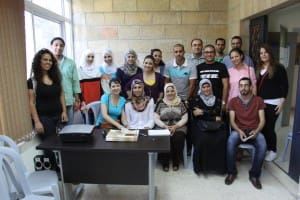
Renee Black, PeaceGeeks:
As a new organization, PeaceGeeks is still coming into its own. We are sorting out what we do, how we do it and what makes us different. Our work with Dalia on its philanthropy competition helped us to identify a few principles that will help us be successful going forward.
1. Choose good partners and stay focused on their needs.
To date, we have operated with no money, just the commitment of our volunteers. While not sustainable forever, having this experience has been a blessing in many ways. We have been able to more carefully choose the partners we want to work with and remain focused on their priorities, without getting distracted by the mandates of donors.
But in fact we do have donors – our volunteers. Without their time, talents and commitment, we cannot do our work. For us to be successful, we need to choose the right partners and volunteers. We need to build relationships based on respect and trust and we need to set realistic expectations.
Overall, Dalia was a great partner to work with, and while some of our volunteer’s work did not get used, causing some frustration, the project was largely a success that we can celebrate.
2. Develop a clear purpose and plan.
We treat our partners like clients. That means that we work closely with them to understand the goals, define the scope of the project, develop a plan and recruit a qualified team. Our role isn’t just to deliver a solution or tell partners what to do; it is to help partners understand the options available to them so they can make informed decisions, now and in the future. When challenges arise, we recognize that these problems are a small part of a bigger picture and move past them constructively.
3. Develop meaningful relationships and ensure partners have skin in the game.
We are committed to choosing good partners and working with them as equals, avoiding the hierarchical relationships that characterize so many development projects. Yet we know from experience that our model carries some inherent risks.
One risk is that because our work is often pro bono, our partners can walk away from a project with little to lose, despite a significant risk to our credibility if past donors and volunteers feel their time and money was not well used.
This means it is important for us to build meaningful relationships based on understanding, respect and trust, but this alone is not enough. We need to construct a way for our partners to have skin in the game so they are as committed to project success as we are, especially during challenging moments.
We don’t yet know how to do this. Dalia’s team remained committed to the project, and our mutual commitment helped us to navigate misunderstandings and challenges when they came up. But they also had something to lose – the project was based on a grant. If that had not been the case, the project might have been at higher risk of failure.
4. Ensure a mutual focus on building capacities.
We focus on building capacities, which means helping our partners learn from our experience, ask better questions and make better decisions. It is not just about delivering solutions.
Neither is it just about our partners’ learning. We also have an opportunity to learn about challenges facing groups like Dalia, how these groups work to address these challenges, and how we can support them. While we have expertise on certain matters, our partners’ knowledge is essential to understanding context, and that helps minimize the risk of failure, which is a significant risk for all technology even without barriers like language, time difference, cultural differences and war.
A final thought. PeaceGeeks treats partners the same way that we treat clients in the private sector. This approach allowed us to develop a shared vision of project success and accountability to one another. It allowed us to remain focused on the partner’s definition of success. And it has allowed us to make better decisions around who we work with and how.
From our work with Dalia, we learned how we can be successful with our projects and how we should respond to failure when it occurs. It also helped us reaffirm some of our core values, and helped us to define some useful principles to apply going forward.
While all relationships require work, the relationship between Dalia Association and PeaceGeeks shows that yes, NGOs and INGOs can work together well. We would not have been able to accomplish as much independently as we did together.
What are your experiences cultivating NGO-INGO relationships that work well?
Nora Lester Murad, PhD, writes fiction and commentary from Jerusalem, Palestine. Her blog, “The View from My Window in Palestine” addresses issues of international development and life under military occupation. She is a life-long social justice activist and a founder of Dalia Association, Palestine’s first community foundation, with whom she now volunteers. She tweets from @NoraInPalestine.
Renee Black is an IT project manager, policy analyst and founder of PeaceGeeks, a Canadian non-profit organization dedicated to building the capacities of grassroots non-profits in conflict-affected areas working on peace, accountability and human rights. She tweets under @reneeontheroad and @peacegeeks.
